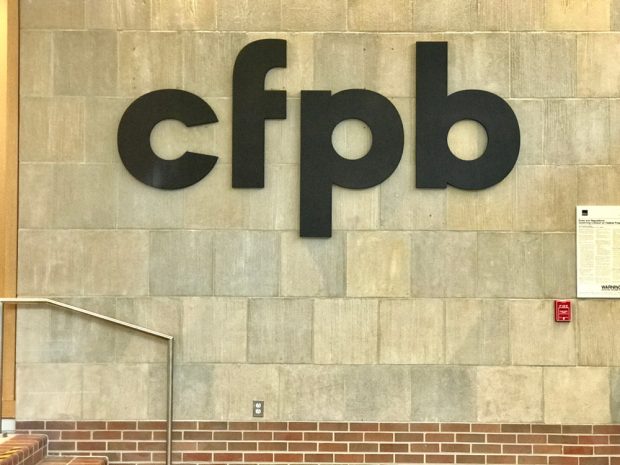 CFPB headquarters. (Source: Shutterstock)
CFPB headquarters. (Source: Shutterstock)
If the structure of the CFPB is unconstitutional, as the Trump Administration admits, the agency's enforcement actions since it was formed should be invalidated, a payday lender contends.
All American Cash Checking and Mid-State Finance, Mississippi-based company is asking the U.S. Supreme Court not only to rule on the constitutionality of the agency, but to rule that its actions are invalid.
Recommended For You
"It matters little if this Court declares the CFPB unconstitutional but prevailing challengers, such as All American, receive no meaningful relief in their case," the company's attorneys, who include former Solicitor General Theodore Olson, said, in asking the court to take up their case.
In 2016, the CFPB, under the former Director Richard Cordray, filed suit against the companies and its owner, Michael Gray, contending that the companies and Gray committed abusive and deceptive acts and practices in their business.
For instance, the CFPB said, employees of the companies were directed never to tell customers the amount of fees they incurred when they cashed a check.
Lower courts allowed Gray and his companies to immediately ask appellate courts for a ruling on the agency's constitutionality.
The Trump Administration has argued that the CFPB's structure is unconstitutional.
And then, last month, CFPB Director Kathy Kraninger abandoned the agency's defense of its structure and said her position is unconstitutional.
In letters to House and Senate leaders, as well as a brief asking for a Supreme Court review of the agency's structure, Kraninger contended that the CFPB's director should be permitted to be removed by the president for any reason.
Under current law, the director may only be removed for cause.
Gray and his companies said that Kraninger has argued that even if the structure of the agency is unconstitutional, the actions the agency has taken should be upheld.
"If All American is correct that the CFPB is unconstitutionally structured, that means that this enforcement action is void," they argued.
© Touchpoint Markets, All Rights Reserved. Request academic re-use from www.copyright.com. All other uses, submit a request to [email protected]. For more inforrmation visit Asset & Logo Licensing.






